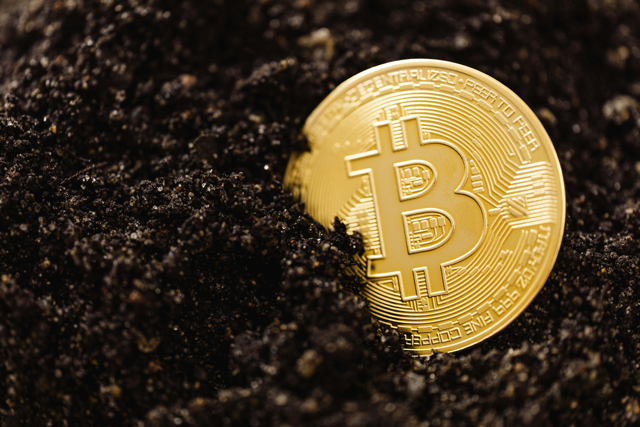
Crypto Mining: A Glimpse into the World of Digital Prospectors
Share
In recent years, crypto mining has become one of the key pillars of the cryptocurrency world. It is the process through which transactions on a blockchain network are verified, and new coins are generated. But what exactly is behind this technical process, and why has it gained such immense importance? This blog post provides a comprehensive overview of crypto mining.
What is Crypto Mining?
Crypto mining is the process where computers solve complex mathematical problems to verify transactions on a blockchain. Once a transaction is successfully verified, it is added to the blockchain, and the miner is rewarded with newly generated coins (such as Bitcoin or Ethereum). This process ensures that the network remains decentralized and prevents any central authority from controlling the currency.
How Does Mining Work?
At its core, crypto mining is based on the Proof-of-Work concept. Here, miners compete with each other to be the first to solve the mathematical problems required to verify a block of transactions. This process demands enormous computing power, provided by specialized computers or graphic cards (GPUs).
Once a miner solves the problem, the block is added to the blockchain, and the miner receives a reward in the form of newly generated cryptocurrencies. This mechanism is similar to gold prospecting – hence the term "mining." However, instead of mining physical gold, digital coins are being mined.
Key Resources for Mining
-
Hardware: To mine successfully, miners need powerful computers or specialized devices like ASICs (Application-Specific Integrated Circuits), which are optimized for cryptocurrency mining. GPUs are also popular with many cryptocurrencies as they efficiently perform large volumes of calculations.
-
Energy Consumption: Crypto mining is highly energy-intensive. Not only do the machines require a lot of electricity to perform the complex calculations, but they also need to be cooled, further adding to the power demand. In regions with high energy costs, mining may be less profitable.
-
Mining Pools: Due to the increasing difficulty of mining, many miners join mining pools. In these pools, miners combine their computing power to verify blocks together. The reward is then split among the pool participants.
The Importance of Mining in the Crypto World
Crypto mining is essential for the operation of many cryptocurrencies, especially those based on Proof-of-Work, such as Bitcoin. It ensures the security and decentralization of the network, as miners are spread across the globe and operate independently. Moreover, mining controls the overall supply of coins. For example, Bitcoin has a maximum supply limit of 21 million coins, which are released gradually through mining.
Challenges and Criticism of Mining
Despite its central role in the cryptocurrency world, mining also faces several criticisms:
-
Environmental Impact: The high energy consumption of crypto mining has raised global concerns. Bitcoin’s carbon footprint, in particular, is often criticized, as mining consumes large amounts of fossil fuels, especially in regions where electricity is generated from coal.
-
Centralization Tendencies: Although cryptocurrencies are meant to be decentralized, there are concerns that mining could become monopolized in certain regions or by large mining companies. This could lead to a small group of actors gaining disproportionate control over the network.
-
Regulatory Challenges: Some countries, like China, have restricted or outright banned large-scale mining operations, while others still lack clear regulations. This creates uncertainty for miners, who may need to relocate to other countries to continue their activities.
Alternatives to Proof-of-Work Mining
Given the challenges associated with traditional mining, many cryptocurrencies are exploring alternative consensus mechanisms. One of the most well-known alternatives is Proof-of-Stake (PoS). In this approach, blocks are not verified through energy-intensive calculations but by "staking" coins, i.e., holding and locking a certain amount of cryptocurrency in the network. This method requires significantly less energy and is considered by many to be a more sustainable alternative.
Conclusion
Crypto mining has played a crucial role in shaping the cryptocurrency world and remains an essential component of many networks. Despite its challenges, particularly regarding energy consumption and environmental impact, mining is still an attractive way to participate in the development and security of blockchains. While Proof-of-Work continues to dominate major cryptocurrencies like Bitcoin, alternative approaches like Proof-of-Stake may gain traction in the future and further evolve the concept of mining.
For those interested in mining, it's important to carefully consider the necessary investments in hardware, electricity costs, and the regulatory conditions in your country. Because, much like real gold prospecting, digital mining can be both lucrative and risky.
Get started with the CRYPWEAR MINING COLLECTION
